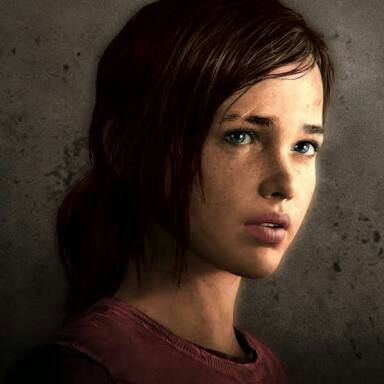
"There was this giant picture of Ellie's face on the front of the store, and I remember grinning like an idiot when I saw that. Hicks recalls seeing the impact of that decision when she visited an EB Games several days before The Last of Us was released, where advertising images for the title were on display around the building.


Don't listen to those 'frat guys,' Ken Levine!" "I know they had some trouble with that, and I think the fact that they won that fight and that the game is selling well will hopefully encourage other publishers not to be so ridiculous about putting prominent female characters on their box art.

Hicks adds that she's particularly proud that Druckmann and Naughty Dog pushed hard to make Ellie a centerpiece of The Last of Us box art, despite pressure to make her less prominent. The Last of Us is a step in the right direction for gaming … but more change is still needed." So when I read the review, at first it was like ‘no, what you're saying is unfair,’ but then I thought about it a bit, and I understood where was coming from. I'm a person too, and I'm tired of large chunks of gaming acting like I don't exist. "At times the way women are treated in games (rarely the playable main character, used as sexualized pawns, rescue that princess, Mario!) is really upsetting to me. Still, she understands why the reviewer was frustrated, particularly regarding the larger context of how many video games deal with female characters. I was drawing the comic, and I was working alongside Neil, and I believed Naughty Dog had its heart in the right place when it came to the women in The Last of Us.” Hicks says her initial reaction to the criticism was “to get upset, because I was personally invested in The Last of Us and it was upsetting to see it targeted as being sexist. I want to see her for real in an actual fighting game.”Īfter initially reading the script for the game, Hicks says Ellie was what drew her to the project, because "she seemed like an unusual character to have in a triple A survival horror game: a tough teenage girl who wasn't sexualized, and who seemed very much the equal of her male counterpart."īut despite the praise for the character of Ellie, critic Chris Suellentrop took issue with the game at The New York Times, claiming that it remained "another video game about men, by men, for men" where the female characters were still secondary. "I got to make up basically my dream character.

"It was something I made up for issue #2 of the comic, this arcade game that Riley is obsessed with," said Hicks. That friend, of course, is the aforementioned Riley, a key character in American Dreams developed by Hicks, while Angel Knives is a game-within-a-game character created by the artist.


 0 kommentar(er)
0 kommentar(er)
